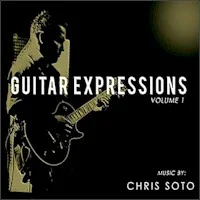Styles: Piano Jazz
Year: 1990
File: MP3@320K/s
Time: 40:32
Size: 94,1 MB
Art: Front
(4:10) 1. Style
(4:26) 2. Color of the Truth
(5:23) 3. I'm Still Standing
(2:33) 4. Sounds of Rhythm
(4:28) 5. Perfect Crime
(3:23) 6. Fanfare
(4:29) 7. Just Say the Word
(4:12) 8. Say What You Mean
(4:34) 9. Halfway There
(2:50) 10. From a Distance
The Color Of Truth
Year: 1990
File: MP3@320K/s
Time: 40:32
Size: 94,1 MB
Art: Front
(4:10) 1. Style
(4:26) 2. Color of the Truth
(5:23) 3. I'm Still Standing
(2:33) 4. Sounds of Rhythm
(4:28) 5. Perfect Crime
(3:23) 6. Fanfare
(4:29) 7. Just Say the Word
(4:12) 8. Say What You Mean
(4:34) 9. Halfway There
(2:50) 10. From a Distance
For a label purporting to be a contemporary jazz outfit, it's curious that Agenda's first two releases were pop/vocal albums (the first was David Lasley's fine Soldiers on the Moon). Perhaps keyboardist/arranger Meyers, who can sing but not exceptionally well (à la David Foster), should've focused on instrumentals since the perky "Fanfare" and the pretty, new age closing piece "From a Distance" are the most likable tunes here. As a pop tunesmith, Meyers is on the average side, much more provocative lyrically than memorable musically, and his voice is no match for his keyboard expertise. Still, the album does have its moments. "Just Say the Word" is a potential soft rock hit and "The Sounds of Rhythm" shows some imagination. Meyers also has some good backing players on hand, most notably Brandon Fields, Mike Landau, Jeff Porcaro, Vinnie Colaiuta, and onetime Styx guitarist Glen Burtnik. Meyers, who has played with and arranged for Earth, Wind & Fire and Madonna, seems to fancy himself a pop artist, but this platter makes it clear that he should be satisfied being a great musician. ~ Jonatham Widran https://www.allmusic.com/album/color-of-the-truth-mw0000316081
Personnel: Bill Meyers (piano, keyboards, synthesizer).
Personnel: Bill Meyers (piano, keyboards, synthesizer).
The Color Of Truth




















